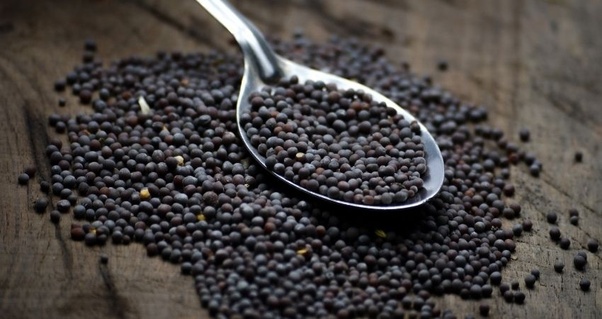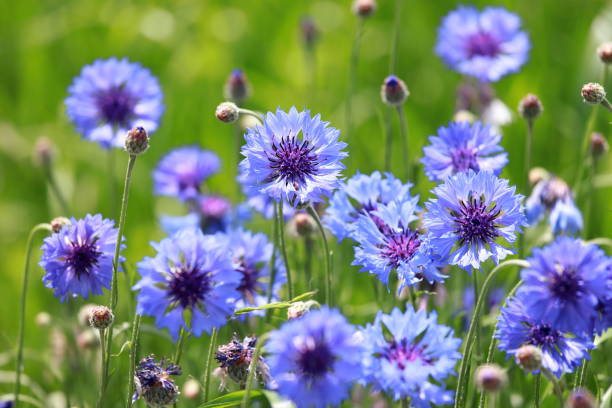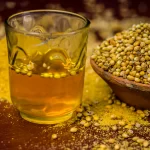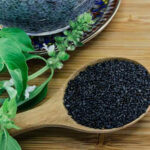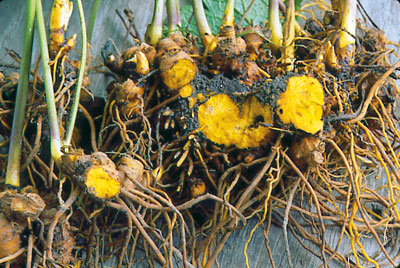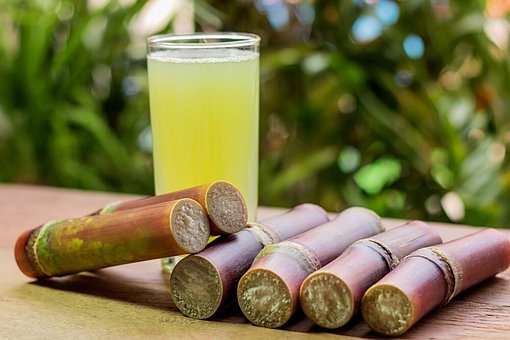Black Mustard Seeds Benefits To Health
Black mustard seeds benefits are just numerous because it is known as a versatile plant known for its medicinal properties, primarily derived from its seeds and oil. Let’s explore the various ways black mustard is utilized for health and culinary purposes:
Black mustard oil has been traditionally employed to alleviate symptoms associated with the common cold, such as congestion and respiratory discomfort.
Additionally, its anti-inflammatory properties make it beneficial for treating painful joints and muscles, commonly referred to as rheumatism, as well as managing symptoms of arthritis.
The seeds of black mustard are often utilized for inducing vomiting and addressing water retention, also known as edema, by promoting increased urine production.
Moreover, black mustard seeds are known to stimulate appetite, making them a potential natural remedy for individuals experiencing reduced appetite or digestive issues.
One of the popular traditional applications of black mustard seeds involves creating a paste by grinding them and mixing with warm water. This mustard paste is then enclosed in a cloth and applied directly to the skin as a “mustard plaster.”
This age-old remedy is commonly used to alleviate symptoms of conditions such as pneumonia, pleurisy (inflammation of the lung lining), arthritis, lumbago (lower back pain), and foot pain.
In the culinary world, black mustard leaves, also known as greens, are utilized as a flavorful addition to salads and various dishes, offering a unique peppery taste and nutritional benefits. Furthermore, black mustard seeds serve as a popular spice and are integral to flavoring mustard condiments.
YOU MAY LIKE: Managing Sugar Levels
It’s interesting to note that there are around 40 different species of mustard plants, but primarily three types are used for producing mustard condiments.
Black mustard (Brassica nigra) stands out for its strong pungent flavor, white mustard (Brassica alba) is milder and is commonly used in traditional American yellow mustard, while brown mustard (Brassica juncea) boasts a dark yellow hue and a robust taste, making it the preferred choice for Dijon mustard production.
Due to the ease of harvesting brown mustard seeds compared to black mustard seeds, many commercial mustard condiments nowadays feature brown mustard seeds.
Regarding its mechanism of action, the exact workings of black mustard for various medical conditions remain largely unknown due to insufficient research.
However, black mustard does contain certain chemicals that may offer temporary pain relief when applied topically to the skin. It’s worth noting that prolonged contact with black mustard on the skin can lead to irritation and burning sensations, emphasizing the importance of cautious use and seeking medical advice when using black mustard for therapeutic purposes.
Health Benefits of Black Mustard Seeds
Mustard seeds contain beneficial compounds such as glucosinolates and myrosinase, which can inhibit the growth of cancerous cells in the body.
SEE ALSO: Sugar Cane Benefits
According to research published in the Journal Human & Experimental Toxicology, these small seeds have potential chemopreventive properties and may counteract the effects of carcinogens.
Additionally, mustard seeds can be effective in alleviating headaches and migraines due to their high magnesium content, which calms the nervous system and eases pain and tension in various parts of the body.
Rich in selenium, mustard seeds are beneficial for bone health, contributing to stronger bones. They also promote the health of nails, hair, and teeth.
Moreover, the antioxidant and anti-inflammatory properties of mustard seeds can help relieve pain in the gums, bones, and teeth.
While aging is a natural process that cannot be halted, its onset can be delayed by incorporating mustard seeds into your diet. These seeds are a good source of vitamins A, K, and C, which can help mitigate signs of aging.
Uses and Effectiveness
While black mustard has been traditionally used for various health purposes, there is insufficient evidence to conclusively rate its effectiveness in treating certain conditions. These include:
- Common cold
- Painful joints and muscles (rheumatism)
- Arthritis
- Water retention (edema)
- Loss of appetite
- Inducing vomiting
- Respiratory conditions such as pneumonia and painful lung conditions (when applied as a “mustard plaster”)
- Aching feet (when applied as a “mustard plaster”)
- Lower back pain (when applied as a “mustard plaster”)
Side Effects
When consumed as part of food, such as mustard, black mustard is generally considered safe for most individuals. However, there is limited information available regarding its safety when used medicinally, either orally or topically.
Some known side effects of black mustard include:
- Oral Consumption: Ingesting large amounts of black mustard seeds can potentially harm the throat and lead to severe side effects. These may include heart failure, diarrhea, drowsiness, breathing difficulties, coma, and even death.
- Topical Application: When applied to the skin, especially for extended periods, black mustard can cause skin blisters and damage.
Given these potential risks and the lack of comprehensive research, it’s crucial to exercise caution and consult with a healthcare professional before using black mustard for therapeutic purposes. This is particularly important for individuals with underlying health conditions or those who are pregnant or breastfeeding.

A graduate of Computer Science and Information Management Technology. Diploma – Caregiving, Certificates – Dementia and Diabetes Awareness and Management. A researcher, blogger, songwriter, singer and acoustic guitarist. Born in an environment where natural talents such as healing are imparted at our natural birth. This natural talents of healing is the result of our genetic inheritance and the training from family environment.

